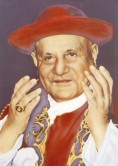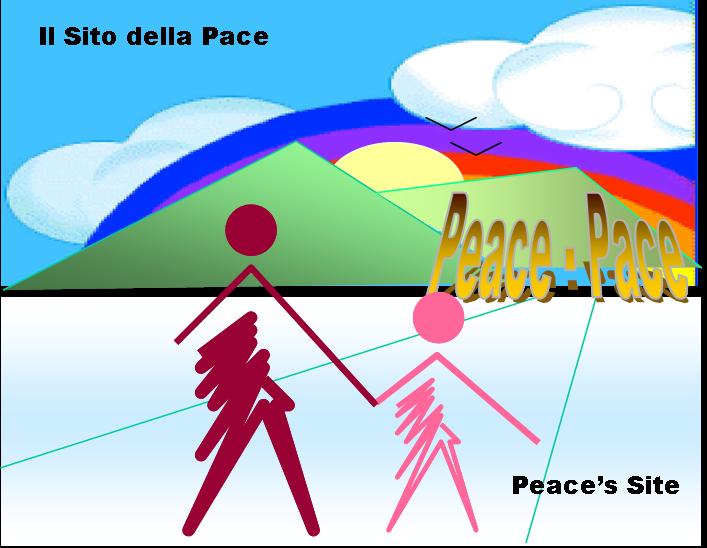|
| |


John XXIII's voice (Italian) |
He is considered, by all people, a Good
Pope for the legacy given by his pontificate. "Pope John remains in
everybodies memory for his smiling face and for his opened arms which
surround the entire world".
.Official
Biography (vatican Site)
|
He was appointed as Pope in conclave of October, 25-28
1958 and was considered a transitory Pope because he was more then seventy; on
the contrary, his nomination was really a turning point in Catholic Church's
history. And the History was made with actions:
 |
He improved Cardinal's Holy College setting their number to
eighty-six. In this way the College became more international. |
 |
He suggested diocesan Synod in Rome to revive the Capital's
ecclesiastical life. |
 |
He gave life to the 2th Vatican Council regenerating the
Catholic Church with doctrine, organization and discipline's updating,
intending himself to open a new way for unification of the distinct eastern
and western brothers. As said John Paul II "The Christians were called to
announce the Gospel with a new courage and more attention to "signs" of
that period. The Council was really a prophetic intuition of this old pontiff
who inaugurated, also with troubles, a hope's season for Christians and
humanity". |
 |
He promulgated Canonic Law review showing his interest for
liturgy and allowing the use of local language for some churches. |
Generally his encyclicals had a
character more cosy than dogmatic; here we find the more authentic thought and
the deepest motivations of the Good Pope. In fact with "La
Mater et magistra" (1961) John XXIII begins his peace's message
to the world: he drops down himself in public life, without localism, and his
message turn heavenly and is directed for the earth's powerbrokers, emphasising
an unsolved problem: he urges richest nations to help poorest. The
eternal contraposition begins a global problem; it goes out from alley and
hidden ravine of the individual's moral and, getting from and less Christian
source, to become a mission for all. From this point peace's sense assume an
absolute dignity and an essential need for all the consciences as the same John
XXIII will explain in "Pacem
in terris" (1963), that is the most famous encyclical; here
the identification of human's rights and duties is the base of world's peace
(encyclical assessed a great impression in all people, also in soviet block,
that the Pope received the son in law of soviet leader Nikita Khrushchev). We
already said in "Motivation"
page and with John XXIII we have the confirmation; the man in the centre his
being, his dignity first of all. Without this assumption every peace's hope is
impossible, unnatural and every attempt is to be considered a battle against
windmill. In Italy we say:
In 1963 the international foundation Balzan assigned him a
peace prize for his action in the Cuban missile's crisis a year before. Most of
all Pope John XXIII wanted a dialog in the world without distinction between
Creeds. He realised the needs to view all Christians as united (he founded a
special secretariat) and in my opinion he planted the seed, to begin a dialog
between churches, that John Paul II will make proper.
When he died, after a long and painful disease, The Times
commented that few Popes have aroused enthusiasm in the world so much; here I
report his testament:
"the most valid thing in the life
is blest Jesus Christ, his Holy Church, his Gospel, the truth and the goodness".
Think to people ... think too!
|

